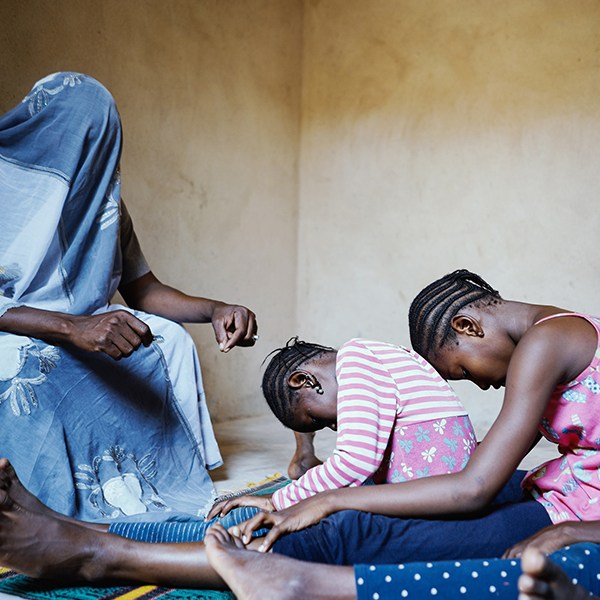Two recent cases in Ghana have reignited urgent calls for zero tolerance towards all forms of abuse, punishment, or mutilation of female genitalia. Rights advocates, health experts, and survivors stress that under no circumstance should the genitals of girls be cut, burned, or tampered with—whether as discipline, tradition, or treatment.
In a powerful testimony published by UNFPA Ghana, Wasila Iddrisu, a survivor of female genital mutilation (FGM), recalls being lured by her grandmother into what she thought was an ordinary family gathering. Instead, she was forcibly cut at just 10 years old. The experience left her with severe pain, infections, and lifelong psychological scars. “I dreaded urinating and would hold it for hours because of the pain,” she recounted.
This harrowing memory mirrors another shocking case that made national headlines this month in Winneba, Central Region. A three-year-old girl was hospitalized in critical condition after her stepmother allegedly poured boiling water on her genitals to punish her for bedwetting. The girl’s father has since been arrested, and police are pursuing the stepmother.
According to the World Health Organization (WHO), FGM has no health benefits and causes only harm. Immediate risks include severe pain, hemorrhage, shock, and infections, while long-term consequences range from recurring urinary tract infections to complications during childbirth and chronic psychological trauma. Research also shows that attempts to “medicalize” FGM—when performed by health professionals—do not reduce its dangers.
Child rights campaigners emphasize that any form of genital punishment, treatment, or mutilation violates fundamental human rights. Ghana’s Criminal Code (Amendment) Act 2007, Act 741, explicitly criminalizes FGM, prescribing imprisonment and fines for perpetrators. The Constitution also forbids practices injurious to physical or mental health and prohibits degrading treatment.
“Touching or altering a girl’s genitals in the name of discipline, culture, or medical practice is not only unhealthy but unlawful,” said a gender activist in Accra. “These practices destroy lives, perpetuate gender inequality, and must stop.”
Advocates are calling for:
-
Stricter enforcement of laws against perpetrators.
-
Community awareness campaigns to dismantle harmful traditions and misconceptions.
-
Comprehensive survivor support, including medical treatment, counseling, and legal aid.
-
Greater involvement of youth and survivors in advocacy to shift community norms.
As Ghana joins the global movement to eliminate FGM and other harmful practices, survivors like Wasila and victims like the child in Winneba are stark reminders of the human cost. Experts insist there can be no justification—cultural, disciplinary, or otherwise—for harming the genitalia of girls.
“Protecting the dignity, health, and future of every girl child is non-negotiable. The time to act is now.”
References:
-
UNFPA Ghana – Survivor and former promoter speak out on FGM (ghana.unfpa.org)
-
MyJoyOnline – Father arrested after stepmother burns child’s genitals in shocking child abuse case (myjoyonline.com)
-
WHO – Health risks of female genital mutilation (who.int)
-
Ministry of Gender, Children and Social Protection – Zero tolerance for female genital mutilation (mogcsp.gov.gh)
Photo credit: www.eeas.europa.eu





